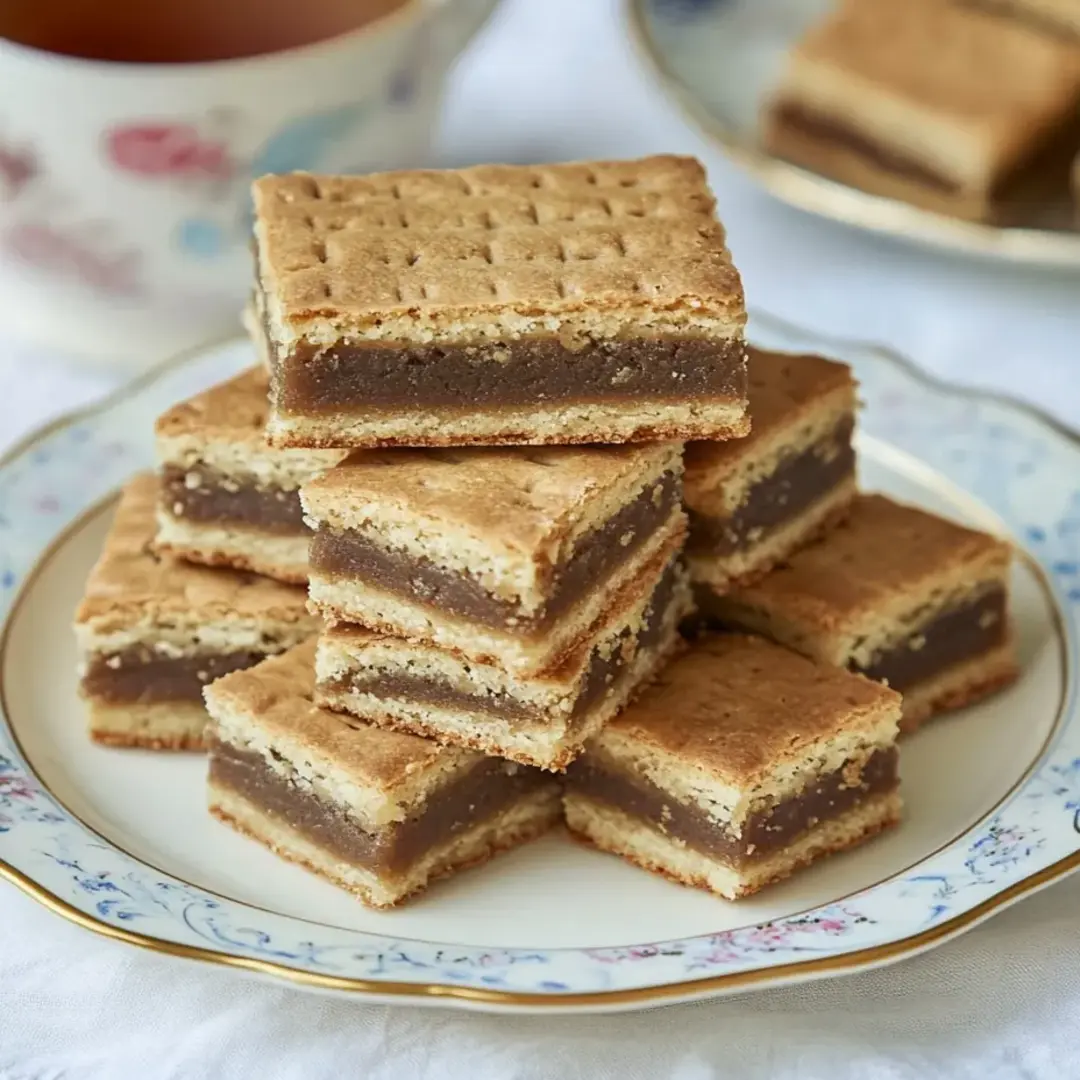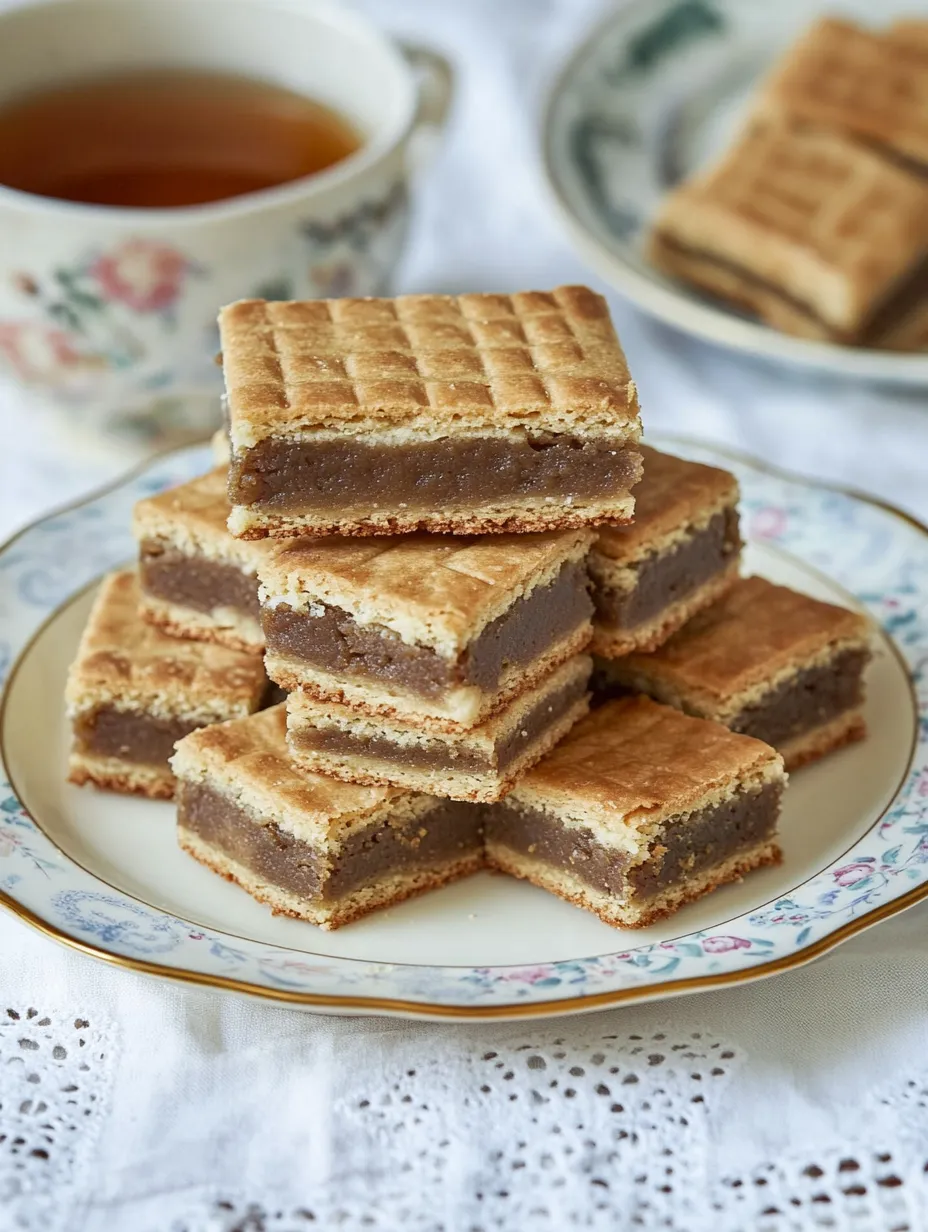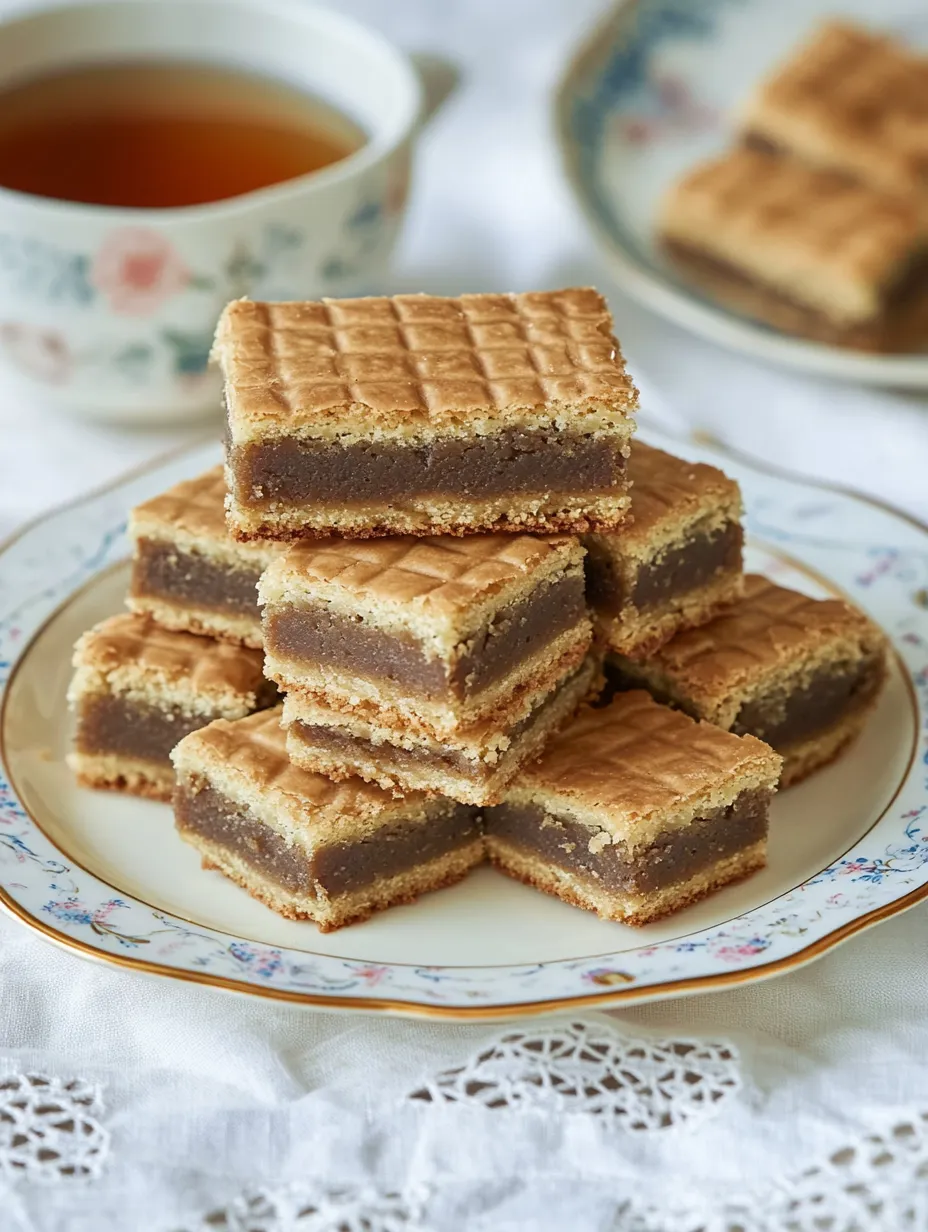 Pin it
Pin it
Traditional Irish Gur Cake transforms simple ingredients into something truly special – a moist, spiced filling sandwiched between flaky pastry layers. This beloved Dublin treat showcases Irish ingenuity at its finest, turning yesterday's bread into today's dessert without sacrificing flavor or comfort.
I served this at our St. Patrick's Day gathering last year, and my mother-in-law – who typically only nibbles at desserts – asked for seconds and then quietly requested the recipe before leaving. There's something about the humble ingredients coming together that creates pure magic on the plate.
Essential Ingredients and Their Purpose
- Homemade pie crust: Creates the flaky foundation and lid; butter-based pastry provides richness that complements the filling beautifully
- Fresh breadcrumbs: Form the base of the filling; using fresh rather than dried creates a moister texture while reducing waste from day-old bread
- Strong black tea: Infuses the filling with depth and complexity; Irish breakfast tea works wonderfully here but any robust black tea will do
- Golden syrup: Adds a distinct buttery, caramel-like sweetness that's quintessentially Irish; this gives a rounded flavor that simple sugar can't match
- Self-raising flour: Lightens the dense breadcrumb filling; the leavening agents help create a cake-like texture rather than a heavy mass
- Raisins: Provide bursts of natural sweetness and chewy texture throughout; they plump beautifully as they absorb the tea
- Warm spices: Cinnamon, nutmeg, ginger and cloves work together to create that unmistakable spice cake aroma and flavor; each contributes its own character to the whole
 Pin it
Pin it
Step-by-Step Cooking Instructions
- Prepare your baking space:
- Begin by preheating your oven to 400°F (200°C). Take an 8-inch square baking pan and generously butter all sides. Cut parchment paper to fit, with some overhang for easy removal later, and press it into the buttered pan. The butter helps the paper stick to the pan sides, preventing any filling from leaking beneath.
- Create your flavorful filling base:
- In a large mixing bowl, combine 2 cups of fresh breadcrumbs with 3/4 cup of strong, hot black tea. Mix well and allow this mixture to sit for about 5 minutes. During this time, the breadcrumbs will absorb the tea, softening completely and taking on its robust flavor. This brief resting period is crucial for proper texture.
- Enrich the filling mixture:
- To your tea-soaked breadcrumbs, add 1/2 cup self-raising flour, 3/4 cup raisins (or mixed dried fruit if you prefer variety), 3 tablespoons golden syrup, 1 teaspoon ground cinnamon, 1/2 teaspoon ground nutmeg, 1/4 teaspoon ground ginger, and 1/8 teaspoon ground cloves. Stir thoroughly until all ingredients are evenly distributed throughout the mixture. Let this sit for 20 minutes to allow the flavors to meld and the dried fruit to plump slightly.
- Prepare the pastry base:
- While your filling rests, take half of your prepared pie crust dough from the refrigerator. On a lightly floured surface, roll it out to approximately 1/4-inch thickness in a shape that will fit your 8-inch square pan. Aim for a size slightly larger than your pan to allow for the sides. Carefully transfer this rolled dough to your prepared pan, gently pressing it into the corners and allowing any excess to hang over the edges.
- Fill the cake:
- After your filling has rested, spoon it onto the pastry base in your baking pan. Use a spatula to spread it evenly, making sure it reaches all corners and has a level surface. The filling should be moist but not soggy—if it seems too wet, you can add a bit more flour; if too dry, a splash more tea.
- Add the pastry lid:
- Roll out the remaining half of your pie crust dough to the same 1/4-inch thickness, again in a shape that will cover your pan. Carefully transfer this to cover the filling. Trim any excessive overhang from both the top and bottom crusts, then crimp or press the edges together to seal. Using a fork, prick the top crust all over to allow steam to escape during baking.
- Apply the finishing touch:
- In a small bowl, whisk together 1 egg yolk with 4 tablespoons of milk to create your egg wash. Using a pastry brush, gently brush this mixture over the entire top crust. This will give your finished Gur Cake a beautiful golden-brown sheen that's as appealing to the eye as the cake is to the palate.
- Bake to perfection:
- Place your assembled Gur Cake in the preheated oven and bake for 45 minutes, or until the top crust has turned a rich golden brown. If you notice the edges browning too quickly, you can cover them with strips of aluminum foil to prevent burning while allowing the center to continue cooking.
The Dublin Connection
Gur Cake has a fascinating history tied to Dublin's working-class neighborhoods. Its name reportedly comes from the Irish slang "gur," meaning "waste" or "leftover," highlighting its origins as a thrifty way to use stale bread. Bakeries would collect unsold bread, mix it with sweeteners and spices, and create this affordable treat. There's also a charming story that it earned the nickname "school cake" because truant schoolboys would buy slices with their lunch money when "on the gur" (skipping school).
 Pin it
Pin it
Perfect Pairings
This cake shines when served with a proper cup of strong Irish tea—the same kind you used in the recipe. The astringency of the tea cuts through the sweetness perfectly. For special occasions, a small dollop of lightly whipped cream or a drizzle of warm custard transforms it into something truly luxurious despite its humble origins.
Seasonal Adaptations
While traditional Gur Cake relies on raisins, you can adapt this recipe throughout the year. In autumn, add diced apple and increase the cinnamon. During the Christmas season, incorporate dried cranberries, orange zest, and a splash of whiskey. In summer, dried apricots and a hint of ginger create a brighter profile.
I learned the importance of texture balance through trial and error. My first attempt used too much tea, resulting in a soggy middle that never quite set. Now I add the tea gradually, stopping when the breadcrumbs are thoroughly moistened but still hold their shape when pressed together.
After making this recipe countless times, I've discovered that the quality of your breadcrumbs significantly impacts the final texture. I now prefer bread that's a day old but not completely stale, and I pulse it in the food processor rather than grinding it to a fine dust. This creates little pockets throughout the filling that become wonderfully cake-like during baking, while still maintaining that distinctive Gur Cake character that makes it so beloved in Irish homes.
Frequently Asked Questions
- → What is Gur Cake and why is it called that?
- Gur Cake is a traditional Irish dessert that originated in Dublin as a way to use up stale bread and bakery leftovers. The name likely comes from the slang term 'gur,' which referred to waste or leftover items.
- → Can I use stale bread instead of fresh breadcrumbs?
- Yes! In fact, using stale bread is traditional - it was originally a thrifty recipe to use up leftover bread. Just pulse stale bread in a food processor to make fresh crumbs.
- → What can I use instead of golden syrup?
- Honey works well as a substitute. You could also use maple syrup or corn syrup, though the flavor will be slightly different.
- → What kind of tea works best for this recipe?
- A strong breakfast tea like Irish Breakfast or English Breakfast works best. Brew it stronger than you would for drinking.
- → Can Gur Cake be frozen?
- Yes, it freezes well. Cut into squares, wrap individually, and freeze for up to 3 months. Thaw at room temperature before serving.
